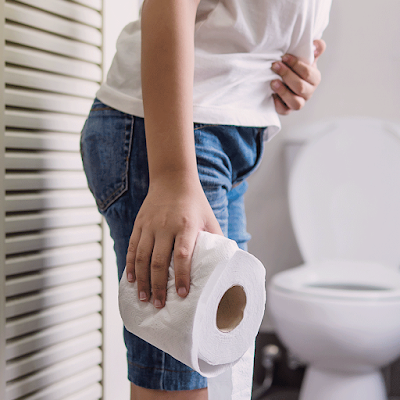Constipation is a common digestive issue that affects millions of people worldwide. Several factors, including diet, lifestyle, medication, and underlying health conditions, can cause it. If left untreated, constipation can lead to discomfort, pain, and even hemorrhoids. Fortunately, there are several ways to relieve constipation and improve bowel movements.
In this article, we will discuss the causes of constipation and provide practical tips on how to get regular again. We will also explore natural remedies, lifestyle changes, and dietary modifications that can help improve digestion and promote healthy bowel movements.
Understanding Constipation:
Constipation is having fewer than three bowel movements per week or difficulty passing stools. Constipation can cause abdominal pain, bloating, and discomfort, making it challenging to go about daily activities. While occasional constipation is normal, persistent constipation can indicate an underlying health condition. A medical professional should evaluate it.
Causes of Constipation:
Several factors can contribute to constipation, including:
Dehydration: Not drinking enough water can cause stools to become complex and difficult to pass.
Lack of Fiber: A diet low in fiber can slow down bowel movements and lead to constipation.
Sedentary Lifestyle: Lack of physical activity can affect bowel movements and lead to constipation.
Medications: Certain medications, such as painkillers, antacids, and antidepressants, Qurs Mulayyin can cause constipation as a side effect.
Underlying Health Conditions: Constipation can be a symptom of underlying health conditions, such as irritable bowel syndrome (IBS), hypothyroidism, and diabetes.
Getting Regular Again: Natural Remedies for Constipation Relief
Drink More Water: Drinking plenty of water can help soften stool and make it easier to pass. Aim for at least eight glasses of water per day.
Eat High-Fiber Foods: Include plenty of high-fiber foods, such as fruits, vegetables, whole grains, and legumes. Fiber helps promote healthy bowel movements by adding bulk to stools.
Exercise Regularly: Regular physical activity can help stimulate bowel movements and prevent constipation. Aim for at least 30 minutes of exercise daily, such as walking, jogging, or cycling.
Try Natural Laxatives: Certain natural laxatives, such as prunes, psyllium husk, and aloe vera, can help promote healthy bowel movements. However, it's essential to use these remedies in moderation and under the guidance of a medical professional.
Massage Your Abdomen: Massaging your abdomen can help stimulate bowel movements and relieve constipation. Use gentle circular motions with your fingertips and massage in a clockwise direction.
Practice Good Bathroom Habits: Establishing good bathroom habits, such as setting aside enough time to go to the bathroom, can help prevent constipation. Avoid holding in bowel movements and try not to strain when passing stool.
Making Lifestyle Changes for Better Digestion:
Reduce Stress: Stress can affect digestion and lead to constipation. Incorporate stress-reducing practices into your daily routine, such as yoga, meditation, or deep breathing exercises.
Get Enough Sleep: Lack of sleep can affect digestion and lead to constipation. Aim for at least seven to eight hours of sleep per night.
Avoid Overuse of Laxatives: Overusing laxatives can lead to dependence and worsen constipation. Consult with a medical professional before using laxatives regularly.
Manage Medications: Certain medications can cause constipation as a side effect. Talk to your doctor about possible alternatives if you're taking medication causing constipation.
Consider Seeing a Physical Therapist: A physical therapist can help address underlying issues contributing to constipation, such as weak abdominal muscles or poor posture.
Dietary Modifications for Healthy Bowel Movements:
Include Probiotics in Your Diet: Probiotics can help promote healthy gut bacteria and improve digestion. Include probiotic-rich foods such as yogurt, kefir, kimchi, and sauerkraut in your diet.
Avoid Processed Foods: Processed foods are often low in fiber and high in unhealthy fats, sugar, and salt. These foods can slow down digestion and lead to constipation.
Eat at Regular Intervals: Eating at regular intervals can help regulate bowel movements and prevent constipation. Aim for three regular meals daily, with healthy snacks in between if needed.
Cut Back on Dairy: Dairy products such as milk, cheese, and ice cream can be challenging to digest for some people and contribute to constipation. Consider cutting back on dairy or switching to lactose-free alternatives.
Limit Alcohol and Caffeine: Both alcohol and caffeine can dehydrate the body and worsen constipation. Limit your intake of these substances and drink plenty of water to counteract their dehydrating effects.
Incorporate Healthy Fats: Healthy fats, such as those found in nuts, seeds, avocado, and olive oil, can help lubricate the digestive tract and promote healthy bowel movements.
Consider Supplements: Certain supplements like magnesium can help promote healthy bowel movements. However, consulting with a medical professional before taking any supplements is essential to ensure they're safe and effective for you.
When to Seek Medical Attention:
While occasional constipation is normal, persistent constipation can indicate an underlying health condition requiring medical attention. If you experience any of the following symptoms, it's essential to consult with a medical professional Unani Dawakhana Near Me:
Blood in Stool: If you notice blood in your stool or rectal bleeding, seek medical attention immediately.
Severe Abdominal Pain: If you experience severe abdominal pain or cramping, seek medical attention immediately.
Vomiting: If you experience nausea, vomiting, and constipation, seek medical attention.
Change in Bowel Movements: If you experience a sudden change in bowel habits, such as chronic diarrhea or constipation, seek medical attention.
Conclusion:
Constipation is a common digestive issue that affects millions of people worldwide. Fortunately, there are several ways to relieve constipation and improve bowel movements. Natural remedies, lifestyle changes, dietary modifications, and supplements can all help promote healthy digestion and relieve constipation. It's essential to consult with a medical professional if you experience persistent constipation or any other symptoms that may require medical attention. With the right approach, you can get regular again and enjoy better digestive health.


Comments
Post a Comment